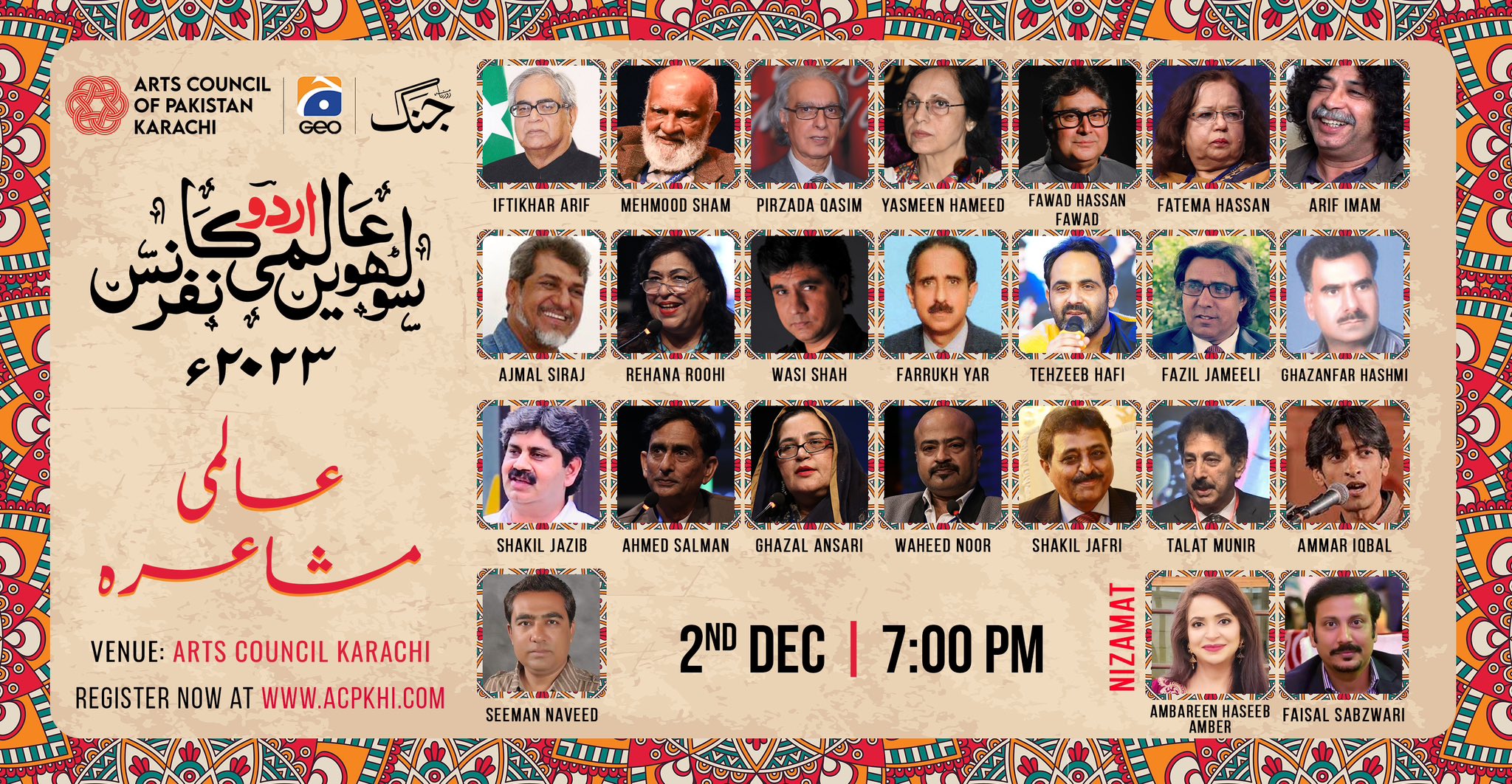Watch Mr. Zafar Masud speak in Maeeshat Ka Daldal: Nikalne Ka Rasta at the 16th Aalmi Urdu Conference in Arts Council of Pakistan, Karachi
Watch full session here
Summary of Zafar Masud’s Discussion about Maeeshat Ka Daldal
Outline
A Change of Mindset is Needed for Economic Change
Mr. Masud emphasized that economic change in Pakistan requires a fundamental shift in mindset. This entails moving away from short-term thinking and focusing on long-term sustainable growth. It also necessitates embracing a culture of accountability and transparency, where individuals and institutions are held responsible for their actions.
Need for a “Charter of Society”
Mr. Masud advocated for the creation of a “Charter of society” that outlines fundamental principles and values guiding Pakistan’s economic development. This Charter would serve as a unifying framework for all stakeholders, promoting collaboration and fostering a shared vision for the future.
Read more: We need a ‘Charter of Society’
Restructuring of Subsidies
He highlighted the need for a comprehensive restructuring of subsidies, particularly in energy, real estate, and agriculture sectors. These subsidies often benefit a limited number of individuals and businesses while creating distortions in the market. Mr. Masud proposed redirecting these resources to the social sector, focusing on areas like education, healthcare, and social safety nets.
Development of the Social Sector
Mr. Masud emphasized that neglecting the social sector hinders Pakistan’s ability to escape its current economic stagnation. He called for increased investments in education, healthcare, and skill development programs to create a more skilled and productive workforce.
No Quick Fix
Mr. Masud cautioned against seeking quick fixes for the economy. He emphasized that true economic change requires long-term commitment and sustained effort. This involves implementing necessary reforms, even if they are unpopular in the short term.
IMF Program: A Stepping Stone, Not a Solution
Mr. Masud clarified that the IMF program is intended for stabilization, not as a solution for all of Pakistan’s economic woes. He advocated for going beyond the IMF’s prescriptions and adopting a more comprehensive and long-term approach to economic development.
Read more: Zafar Masud on Going Beyond the IMF’s Prescription — VCAST Online
Public Push for Change
Mr. Masud asserted that the impetus for change must come from the public. He believes that only when the demand for economic reform arises from the grassroots level will the government take decisive action.
Real Estate, Energy, and Agriculture: A Missed Opportunity
Mr. Masud highlighted the significant contribution of real estate, energy, and agriculture to Pakistan’s GDP (52%). However, he pointed out that their contribution to the economy through taxation is minimal. This creates an imbalance and hinders the government’s ability to generate revenue for essential services.
Conclusion
Mr. Zafar Masud’s discussion provides valuable insights into the complexities of Pakistan’s economic challenges. He emphasizes the need for a multi-pronged approach focused on changing mindsets, restructuring subsidies, developing the social sector, and fostering a culture of accountability. He believes that true economic change will require a long-term commitment from both the government and the public. It is essential to move beyond temporary solutions and embrace a holistic vision for a sustainable and prosperous future for Pakistan.
Aalmi Urdu Conference / Urdu International Conference

The Urdu International Conference, also known as Aalmi Urdu Conference, is an annual event dedicated to the rich literary heritage of the Urdu language. It brings together scholars, writers, poets, and enthusiasts from around the world to engage in stimulating discussions, debates, and appreciation sessions that celebrate the beauty and significance of Urdu.
This multi-day event features a captivating array of sessions, panel discussions, poetry recitals, and book launches, providing a platform for renowned Urdu scholars, writers, and poets to share their expertise and perspectives on various aspects of the language and its literary traditions. The conference also serves as a springboard for emerging writers and artists to showcase their talent and connect with established figures, fostering a vibrant and inclusive environment for the exchange of ideas and the appreciation of Urdu’s enduring legacy.
The Urdu International Conference serves as a beacon for promoting awareness and appreciation of Urdu language and literature on a global scale. It fosters dialogue and collaboration among Urdu scholars and enthusiasts across borders, bridging geographical and cultural divides to strengthen the enduring bonds of shared linguistic heritage. Moreover, the conference actively contributes to the preservation and development of Urdu language and its cultural legacy, ensuring that this rich linguistic treasure continues to thrive and inspire future generations.
Through its stimulating programs and enduring impact, the Urdu International Conference serves as a testament to the enduring power of language to connect people, foster creativity, and preserve cultural heritage. It is an event that celebrates the vibrancy of Urdu, ensuring its continued relevance and significance in the global literary landscape.